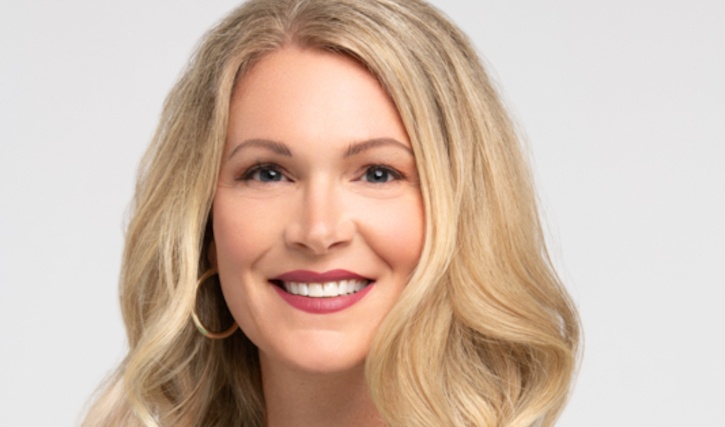Meredith Holt is the National Sales Manager at Atlantia Clinical Trials, where she helps companies shape their clinical programs to achieve their business goals. A 25-year veteran of the pharmaceutical and nutraceutical industries. Holt is a Certified Clinical Nutritionist (CCN) and holds master’s degrees in both exercise physiology from Northeastern Illinois University, and Clinical Nutrition from New York Chiropractic College. She has previously worked with CBD manufacturers in developing an e-commerce platform where practitioners can recommend CBD to their patients. Atlantia Clinical Trials, which has operations in Cork, Ireland, and Chicago, carries out human clinical studies in functional foods, food ingredients, probiotics, and cosmetics.
HT: What is the key to overcoming regulatory restrictions that are holding CBD back in the USA?
MH: Proving the science of CBD. As more companies invest in research there will be more data to support the benefits of CBD. This might ease some of the main regulatory challenges as stated by the U.S. Food & Drug Administration (FDA), such as clear safety standards and strong enforcement; the need to support research evaluating the therapeutic effects of CBD; the need for consistent terminology related to these products; and the need for industry standards to address the potentially dangerous manufacturing quality issues with some cannabis-derived products on the market today.
Join Meredith Holt, Asa Waldstein of Supplement Advisory Group and Ted Dinan, Medical Director of Atlantia Clinical Trials for a panel discussion, “CBD: Bridging the gap between science and regulation,” Thursday, June 9, 12 noon EST. To register free of charge.
HT: The FDA itself is considered to be a research-based organization, so what seems to be the holdup there with CBD?
MH: The agency recognizes that there are many unanswered questions about the science, safety, and quality of CBD products, as stated by Amy Abernethy, FDA’s Principal Deputy Commissioner, in a recent interview. The regulators’ perspective is to protect consumers and the overall health community. Meanwhile, consumers are becoming more informed and want validated claims.
HT: The FDA continues to warn marketers about package labeling and product descriptions and advertising claims. How should companies be acting now, in the absence of clear market rules?
MH: What you put out there on social media can get you in hot water. I would recommend a CBD regulatory expert to guide you in overcoming the regulatory hurdles that many CBD companies are encountering when commercializing their products. Working with experts that can support them to understand the regulatory requirements can be extremely beneficial to a company’s success and ultimate financial survival.
HT: What’s the proper role of clinical data in marketing CBD?
MH: Clinical data provides all stakeholders with confidence in the statements used by marketers. Disinformation is creating a lot of noise that in my opinion can be alleviated through robust research.
HT: What is your company’s role in improving this environment?
MH: As a Contract Research Organization (CRO), we have the expertise in designing, developing and conducting human clinical trials on CBD products to ICH GCP standards – the gold research standard. It’s required by any regulatory body or even peer-reviewed publication. There are many unanswered questions about CBD products outside the approved drug context, as listed by the FDA:
- How much CBD is safe to consume in a day? How does it vary depending on what form it’s taken?
- Are there drug interactions that need to be monitored?
- What are the impacts on special populations, like children, the elderly, and pregnant or lactating women?
- What are the risks of long-term exposure?
These and other questions need to be considered if there is interest in exploring a framework under which CBD might be available more widely. The way to answer them is through reliable and high-quality human clinical trials.
HT: Where does CBD have the most promise in terms of human health?
MH: Chronic stress can lead to other chronic illnesses. In my opinion, if CBD can help regulate your stress response it can potentially have a positive effect on other systems, improving overall health.
HT: Help us with the distinction between pharma-grade CBD by prescription, like Epidiolex, and CBD more commonly available over the counter.
MH: Epidiolex has been studied to treat a specific disease population and has been evaluated as a drug by the FDA. Most CBD you see in local stores are considered supplements, some of which have no clinical data. Regulators are highlighting the need for this type of clinical data. As mentioned before, there are many unanswered questions about CBD products beyond the drug or pharma context, that supplement makers need to tackle.
HT: What’s out there on the edge in CBD and cannabinoids research at this point in time?
MH: Our team has conducted market research on CBD trials up to May 20, 2022. Many conditions are being tackled by CBD-derived treatments. Just to list some: Urticaria, drug abuse, musculoskeletal pain, diabetic neuropathies, insomnia, anxiety, osteopenia, fibromyalgia, and asthma.
HT: Considering your years of experience observing product development in the pharma and nutraceuticals sectors, how big is CBD in the bigger picture?
MH: I believe there is more to come in the CBD market, especially as we uncover more specific populations and conditions that CBD can help. CBD is widely utilized by consumers and this trend is pushing companies to supply CBD products but also to validate the claims and statements they are announcing through high-quality research.

